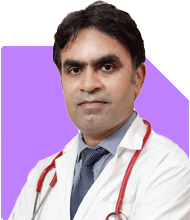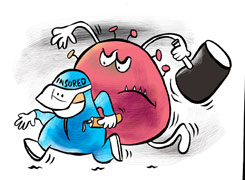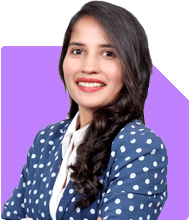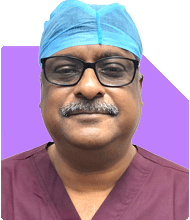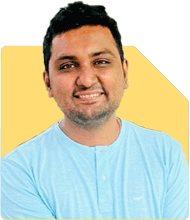Dr Chandrakant Lahariya | Answer |Ask -Follow
Diabetologist, Consultant Physician, Vaccine Expert - Answered on Nov 01, 2024
The Delhi-based senior physician also has over 20 years of experience in hypertension, thyroid disorders and respiratory illnesses.
An expert on common health issues and the preventive aspects of medicine, he has co-authored the book, Till We Win: India's Fight Against The Covid-19 Pandemic.
Dr Chandrakant completed his MBBS from the Maulana Azad Medical College, New Delhi, and his MD from the Lady Hardinge Medical College, New Delhi.
He has a DNB (National Board of Examination, 2009) certification and a diploma in vaccinology from Institut Pasteur, Paris.... more
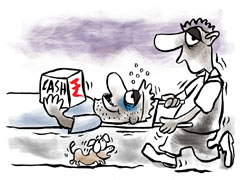
I have severe itching below knees, inner forearm during at least two times during the day. Sometimes during nights. Unless I scratch the area for a few minutes to get some relief. Sometimes a cold water wash too gives some relief. I am on homeopathic medicine. I am also diabetic with Hb1Ac 7.5. fasting 106 and pp. 160. weight 71 kg and height 5.10. Kindly guide. I am basically a resident of Surat. Currently in Hyderabad
The itching could also be a side effect of some of the medicines you might be consuming. I advise that you please get done liver function tests done. Till then, any antiallergic lotion and tablets could be continued.
If your liver markers are normal and any possible liver irritant is avoided, course of Monteklukast for a month can be considered.
Dr Chandrakant Lahariya
Centre for Health: The Specialty practice
Safdarjung Enclave, New Delhi
You may like to see similar questions and answers below
Dr Karthiyayini Mahadevan | Answer |Ask -Follow
General Physician - Answered on Apr 25, 2023
Dr Karthiyayini Mahadevan | Answer |Ask -Follow
General Physician - Answered on Jul 12, 2024
Shreya Shah | Answer |Ask -Follow
Nutritionist, Diabetes Educator - Answered on Sep 02, 2024
Dr Anshuman Manaswi |39 Answers |Ask -Follow
Plastic-Aesthetic Surgeon, Emergency Care Consultant - Answered on Jan 27, 2025
Abhishek Shah |77 Answers |Ask -Follow
HR Expert - Answered on Aug 19, 2025
Dr Nagarajan J S K |2327 Answers |Ask -Follow
NEET, Medical, Pharmacy Careers - Answered on Aug 19, 2025
Dr Nagarajan J S K |2327 Answers |Ask -Follow
NEET, Medical, Pharmacy Careers - Answered on Aug 19, 2025
Dr Nagarajan J S K |2327 Answers |Ask -Follow
NEET, Medical, Pharmacy Careers - Answered on Aug 19, 2025
Dr Nagarajan J S K |2327 Answers |Ask -Follow
NEET, Medical, Pharmacy Careers - Answered on Aug 19, 2025
Dr Nagarajan J S K |2327 Answers |Ask -Follow
NEET, Medical, Pharmacy Careers - Answered on Aug 19, 2025
Dr Nagarajan J S K |2327 Answers |Ask -Follow
NEET, Medical, Pharmacy Careers - Answered on Aug 19, 2025
Dr Nagarajan J S K |2327 Answers |Ask -Follow
NEET, Medical, Pharmacy Careers - Answered on Aug 19, 2025
Dr Nagarajan J S K |2327 Answers |Ask -Follow
NEET, Medical, Pharmacy Careers - Answered on Aug 19, 2025
Dr Nagarajan J S K |2327 Answers |Ask -Follow
NEET, Medical, Pharmacy Careers - Answered on Aug 19, 2025





